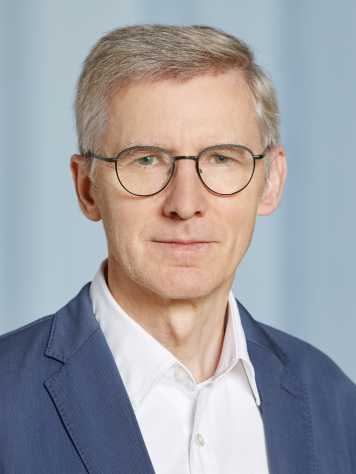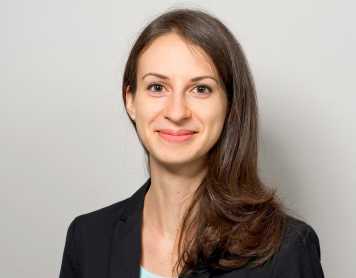6th ETH Workshop on Democracy
The 6th ETH Workshop on Democracy, in collaboration with CEPR, will take place on Monday 12th and Tuesday 13th of June, 2023 in Zurich. The workshop is organized by the Chair of Macroeconomics: Innovation and Policy and aims to: (i) present leading theoretical approaches to modeling Politics, (ii) present cutting-edge theoretical analyses of Political Economy problems, and (iii) explore new forms of democracy.
The conference venue is ETH Zürich, LEE E 101, external page Leonhardstrasse 21 8092 Zürich, where the closest tram stop is Haldenegg. From Zürich HB, the venue can be reached by tram 6 (direction Zoo) or tram 10 (direction Flughafen). From Zürich Airport, the venue can be reached by tram 10 (direction Bahnhofplatz/HB).
Further details can be found in the program: Download 6th ETH Workshop on Democracy - Program (PDF, 546 KB)
Day 1 - Monday, 12 June 2023
Day 2 - Tuesday, 13 June 2023

Abstracts
(most papers are work in progress and preliminary and should not be cited without the consent of the authors.)
Day 1 - Monday, 12 June 2023
Download Voter Information and Distributive Politics (PDF, 329 KB) | Benjamin Blumenthal (ETH Zürich)
I consider a series of models of political agency with moral hazard and adverse selection, in which politicians allocate resources to voters. Within these models combining electoral accountability and distributive politics, I ask: is more information good for voters? With homogeneously informed electorates, I first show how and when less information can benefit voters, through the interaction of both partial control and partial screening effects. Building on this mechanism, I subsequently consider heterogeneously informed electorates and ask: how can voters’ welfare be affected by the informational advantage of a few voters? Is it better to be among the more informed few or the less informed many? I show that the ability of more informed voters to communicate with less informed voters and the nature of their informational advantage can play a significant role in affecting voters' welfare by influencing politicians' incentives to allocate resources to specific voters.
Download Combining Diversity and Excellence in Multiwinner Elections (PDF, 587 KB) | Mostapha Diss (University of Franche-Comté), with Clinton Gubong Gassi and Issofa Moyouwou
We address the problem of electing a committee subject to diversity constraints. Given a set of candidates and a set of voters, such that each voter is represented by a linear order, the goal is to select a fixed-size subset of candidates by combining the excellence of candidates and a given form of diversity requirements. The grounding assumption in this paper is that the set of candidates is slotted into at least two groups according to a specific attribute such as gender, religion, ethnicity, or profession, and the diversity constraint takes the form of a vector of integers specifying the lowest number of candidates required from each group. In this paper, we define a class of voting rules suitable for electing a diverse committee in this framework. We show how this class of rules handles the issue of combining excellence and diversity and, further, we provide some axiomatic properties that highlight the behavior of these rules when we aim to select a diverse committee.
Download Pack-Crack-Pack: Gerrymandering with Differential Turnout (PDF, 1.3 MB) | Laurent Bouton (Georgetown University and CEPR), with Garance Genicot, Micael Castanheira, and Allison Stashko
We study the strategic drawing of electoral maps by political parties, known as gerrymandering. We develop a theoretical framework in which individuals have two dimensions of heterogeneity: partisanship and the probability of turning out. In this framework, parties adopt different gerrymandering strategies depending on the turnout rates of their supporters relative to that of their opponents. The broad pattern is to pack-crack-pack along the turnout dimension. It entails packing both supporters with a low turnout rate and opponents with a high turnout rate, and mixing supporters and opponents of intermediate turnout rates. This framework allows us to derive a number of empirical implications about the link between partisan support, turnout rates, and electoral maps. Using a novel empirical strategy relying on the comparison of maps proposed by Democrats and Republicans during the 2020 redistricting cycle in the US, we find support for these predictions.
Download Drain the Swamp: A Theory of Anti-Elite Populism (PDF, 886 KB) | Gabriele Gratton (University of New South Wales), with Barton E. Lee
We study a model of popular demand for anti-elite populist reforms that drain the swamp: replace experienced public servants with novices that will only acquire experience with time. Voters benefit from experienced public servants because they are more effective at delivering public goods and more competent at detecting emergency threats. However, public servants’ policy preferences do not always align with those of voters. This tradeoff produces two key forces in our model: public servants’ incompetence spurs disagreement between them and voters, and their effectiveness grants them more power to dictate policy. Both of these effects fuel mistrust between voters and public servants, sometimes inducing voters to drain the swamp in cycles of anti-elite populism. We study which factors can sustain a responsive democracy or induce a technocracy. When instead populism arises, we discuss which reforms may reduce the frequency of populist cycles, including recruiting of public servants and isolating them from politics. Our results support the view that a more inclusive and representative bureaucracy protects against anti-elite populism. We provide empirical evidence that lack of trust in public servants is a key force behind support for anti-elite populist parties and argue that our model helps explain the rise of anti-elite populism in large robust democracies.
Download Political Correctness and Elite Prestige (PDF, 705 KB) | Esther Hauk (IAE-CSIC and Barcelona School of Economics), with Javier Ortega
Consider a society where the prestige of orthodox views is linked to the prestige of the elite. Heterodox individuals are less likely to express their views if other peers refrain from doing so and if the elite is prestigious. In turn, corruption by the elite is less easily detected if orthodox views dominate. We characterize equilibrium self-denial and corruption and show that an exogenous increase in the range of orthodox views may result in a decrease in the total number of individuals truthfully expressing their views. Some features of the model are shown to be compatible with U.S. data.
Download Informal Elections with Dispersed Information: Protests, Petitions, and Nonbinding Voting (PDF, 912 KB) | Stephan Lauermann (University of Bonn and CEPR), with Mehmet Ekmekci
We study information transmission through informal elections. Our leading example is that of protests in which there may be positive costs or benefits of participation. The aggregate turnout provides information to a policy maker. However, the presence of activists adds noise to the turnout. The interplay between noise and participation costs leads to strategic substitution and complementarity effects in citizens’ participation choices, and we characterize the implications for the informativeness of protests. In particular, we show that rather than being a friction, costs may facilitate information transmission by lending credibility to protest participation.
Download Counterintuitive Comparative Statics in Legislative Bargaining (PDF, 149 KB) | Maria Montero (University of Nottingham)
This paper shows that a very weak monotonicity property may fail to hold in legislative bargaining. Under the leading (noncooperative) model of legislative bargaining due to Baron and Ferejohn (1989), an increase in a party’s voting weight, holding everything else constant, may result in a reduction of the party’s expected equilibrium payoff.
Day 2 - Tuesday, 13 June 2023
Collective Action and Informational Freeriding | Fikri Pitsuwan (ETH Zürich)
I study the relationship between information and equilibrium in a game of collective action. I show that the value of information is negative in the sense that more informed agents suffer from the burden of knowledge. Interestingly, even if information is private, the equilibrium level of collective action is as if all agents are as informed as the most informed agent.
Download Exact Learning of Preference Structure: Single-peaked Preferences and Beyond (PDF, 452 KB) | Edith Elkind (University of Oxford), with Sonja Kraiczy
We consider the setting where the members of a society (voters) have preferences over candidates, and the candidates can be ordered on an axis so that the voters’ preferences are single-peaked on this axis. We ask whether this axis can be identified by sampling the voters’ preferences. For several natural distributions, we obtain tight bounds on the number of samples required and show that, surprisingly, the bounds are independent of the number of candidates. We extend our results to the case where voters’ preferences are sampled from two different axes over the same candidate set (one of which may be known). We also consider two alternative models of learning: (1) sampling pairwise comparisons rather than entire votes, and (2) learning from equivalence queries.
An Economic Model of Deliberative Democracy | Tim Besley (London School of Economics and CEPR)
This presentation will develop a canonical model of deliberative democracy. The approach focuses on how a deliberative policy process which creates a space for policy debate can increase compliance and reduce enforcement costs which can affect the set of policies that are feasible. The approach can be used to interrogate debates about the normative value increasing the role of deliberation in representative democracies.
Populism as Commitment: Theory and Evidence | Antonio Nicolò (University of Padua), with Luca Bellodi, Massimo Morelli, and Paolo Roberti
When voters’ trust in politicians collapses, they demand policies that they can easily monitor. Disenchanted citizens therefore prefer committed delegates to unconstrained representatives (trustees). We show that if in a party primary a committed delegate prevails, then the committed delegate also chooses all the strategies typically associated with populism, namely anti-elite and pro-people rhetoric. We bring the predictions to the data in the context of the US congressional elections. We use multilevel regression and post-stratification to create district-level estimates of voters’ distrust in federal government and we analyse the universe of tweets posted by approximately 1,500 congressional candidates between 2012 and 2020. We use natural language processing techniques to detect when a tweet contains a policy commitment or populist rhetoric. We find that voters’ distrust is strongly associated with candidates’ supply of commitments and populist rhetoric, especially when the candidates tweet about topics which enjoy a broad support among voters. We finally show that commitments and populist rhetoric are effective at mobilising distrustful voters, who are more likely to turn out to vote for the committed candidate.
Download Polarized Extremes and The Confused Centre: Campaign Targeting of Voters with Correlation Neglect (PDF, 136 KB) | Inés Moreno de Barreda (University of Oxford and CEPR), with Gilat Levy and Ronny Razin
We model the effect of competing political campaigns on the opinion of voters who exhibit correlation neglect, i.e., fail to understand that different campaigns might be correlated. We show that political campaigners can manipulate voters’ beliefs even when voters understand the informativeness of each campaign separately. The optimal coordination of campaigns involves negative correlation of good news and sometimes full positive correlation of bad news. We show that competition in targeted campaigns has the effect of changing the opinions of different groups in different ways; competition increases polarisation among extreme voters but at the same time increases the variance and the quality of moderates’ voting decisions.
Download Organizational Capacity and Project Dynamics (PDF, 1.2 MB) | Dana Foarta (Stanford Graduate School of Business and CEPR), with Michael M. Ting
This paper provides a dynamic theory of the effects of organizational capacity on public policy. Consistent with prevailing accounts, a bureaucratic organization with higher capacity, i.e., a better ability to get things done, is more likely to deliver projects in a timely, predictable, or efficient fashion. However, capacity also interacts with political institutions to produce far-reaching implications for the size and distribution of public projects. Capacity-induced delays and institutional porousness can allow future political opponents to revise projects in their favor. In response, politicians design projects to avoid revisions, for example by equalizing distributive benefits, or by overscaling projects. We show that higher organizational capacity can increase project size, inequalities in the distribution of project benefits, and delays. The range of capacity levels that produce low social benefits increases with the extent of institutional constraints. This suggests that political systems with high capacity and high institutional constraints are especially vulnerable to inefficient projects.
Download Career Incentives and Corruption: A Lab Experiment (PDF, 598 KB) | César Martinelli (George Mason University), with Naila C. Sebastián Esandi
We propose a model of political career incentives and corruption, and take it to the lab. As predicted by the model, moral incentives and the desire for reelection interact to refrain politicians from taking bribes in the early stage of their careers. Treatments with weaker reelection incentives do worse in terms of inducing good initial behavior of politicians, but may do better in terms of inducing good behavior at a later stage. The probability of voters' mistakes and, possibly, the distribution of moral motivations seem to vary with the treatment, with strategic behavior being apparently more common in environments with perfect information about politicians' actions.
Organizers

Hans Gersbach holds the Chair of Macroeconomics: Innovation and Policy at ETH Zurich. He is Co-Director of KOF Swiss Economic Institute and a CEPR Research Fellow. He is a member of the Academic Advisory Council at the Federal Ministry for Economic Affairs and Climate Action in Germany. He is an IZA and a CESifo Research Fellow. Hans Gersbach's current research focuses on the design of new economic and political institutions for the well-being of society. It also includes macroeconomic policy design, innovation and growth, epidemic diseases, and financial stability. He has published extensively in these fields.

César Martinelli is a professor of economics at George Mason University. He is a fellow of the Econometric Society and an Economic Theory fellow. He has published numerous articles in professional journals, including The Review of Economic Studies, Theoretical Economics, The Journal of Economic Theory, Games and Economic Behavior, The Journal of the European Economic Association, and The International Economic Review. Before joining George Mason, he held faculty appointments at ITAM and at Carlos IIII University in Madrid. He has been a visitor at the University of Chicago (2011) and the University of Rochester (1997-1998). He obtained a PhD in economics at UCLA in 1993 and a BA in social sciences (economics) at the Catholic University in Peru in 1987.

Oriol Tejada is an Associate Professor at the University of Barcelona. He previously was a Senior Researcher at ETH Zurich since 2017, and a Postdoctoral Researcher since 2011. He earned his PhD in Economics in 2011 from Universitat de Barcelona, after graduating in Mathematics and Electrical Engineering in 2004 from Universitat Politècnica de Catalunya and spending three years in the Industry. He has done research in various areas, including (but not limited to) the study of electoral competition, voting rules, assignment markets, and power indices. He has published his research in outlets such as Journal of Economic Theory, Journal of Public Economics, Games and Economic Behavior, Economic Theory, Social Choice and Welfare, International Journal of Game Theory and European Journal of Operational Research. He has also written a book about Spanish Politics.

Barton E. Lee is an Assistant Professor and Chair of Political Economy and eDemocracy at ETH Zürich. He has written on a range of topics within political economy such as legislative bargaining in the U.S. Congress, accountability issues in politics, democratic backsliding, and the analysis of ranked-choice voting systems. His work has been published in leading outlets: Review of Economic Studies; Journal of Public Economics; Games and Economic Behavior; Journal of Law, Economics, and Organizations; Social Choice and Welfare. Prior to joining ETH Zürich in September 2022, Barton was a Junior Research Fellow at Magdalen College, University of Oxford; he obtained his PhD in Economics from UNSW Sydney in 2021.

Fikri Pitsuwan is a Postdoctoral Researcher at ETH Zürich and a Global Priorities Fellow at the Forethought Foundation for Global Priorities Research. His research interest is in applied microeconomic theory, specifically within public economics and organizational economics. In an ongoing project, he studies the effect of legislative bargaining with heterogeneous districts on public good provision. He received his PhD in Economics from Cornell University in 2021.

Kremena Valkanova is a Postdoctoral Researcher at ETH Zurich since 2021. She has done research on new voting methods, stochastic choice, bounded rationality and learning in games and has published her work in the journal Games and Economic Behavior. She completed her PhD degree in 2021 at the University of Zurich.